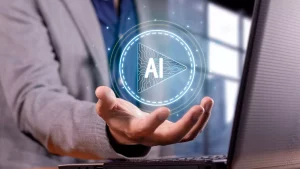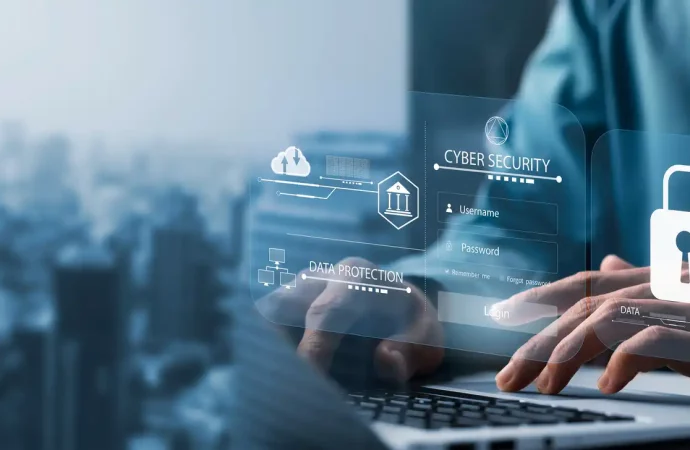Cybersecurity has always been a high-stakes game of cat-and-mouse. For every ingenious method hackers develop, security professionals must respond with increasingly sophisticated tools to stay one step ahead. Today, artificial intelligence (AI) has stepped into the spotlight, offering unprecedented solutions to some of the cybersecurity world’s most complex problems. From minimizing data breaches to predicting
Cybersecurity has always been a high-stakes game of cat-and-mouse. For every ingenious method hackers develop, security professionals must respond with increasingly sophisticated tools to stay one step ahead. Today, artificial intelligence (AI) has stepped into the spotlight, offering unprecedented solutions to some of the cybersecurity world’s most complex problems.
From minimizing data breaches to predicting potential attacks, AI is fundamentally reshaping how we protect businesses, data, and individuals from digital threats. This article dives deep into the challenges the cybersecurity sector faces, the pivotal role AI is playing in its transformation, real-world examples of AI in action, and where this game-changing technology is headed next.
Understanding Cybersecurity Challenges

Image by Yandex.com
The cybersecurity industry is under constant pressure to evolve, as threats become more dangerous and widespread. Here’s a look at some of the primary challenges the field is battling today:
1. Increasing Volume and Sophistication of Cyber Threats
Attack methods have grown exponentially, ranging from phishing scams to ransomware attacks and zero-day exploits. Around 560,000 new pieces of malware are detected daily, according to recent studies, making it nearly impossible for traditional systems to keep up.
2. Vulnerabilities in Software and Hardware
With businesses relying on increasingly complex systems, vulnerabilities in software and hardware become ripe opportunities for attackers. Security professionals continually patch and safeguard infrastructure, but the sheer scale of interconnected devices makes it a daunting task.
3. Shortage of Cybersecurity Professionals
According to the global research group ISC(2), there is a talent gap of over 3.4 million cybersecurity specialists worldwide. Without enough skilled professionals, vital IT systems and data are at risk of being left vulnerable to attacks.
Given these challenges, it’s clear the industry requires innovative solutions to fill the gaps. This is where AI comes into play.
The Role of AI in Cybersecurity
Artificial intelligence excels at analyzing massive amounts of data and identifying patterns that humans would struggle to recognize. Therefore, it has a natural fit within cybersecurity solutions. Here are some of the key applications and benefits of AI in cybersecurity:
1. Threat Detection and Response
AI-powered systems can monitor network behavior in real time and flag irregularities for investigation. Behavioral analytics tools like Darktrace and IBM QRadar utilize machine learning to detect anomalies, such as unusual login times or transfers of large amounts of data—often indicative of breaches.
2. Predictive Threat Analytics
AI enables predictive capabilities to foresee potential vulnerabilities and attack points before bad actors can exploit them. For example, Microsoft’s Sentinel allows organizations to input threat signals from different systems to proactively protect against attacks.
3. Automated Incident Response
AI reduces response times by automating key processes. Platforms like SOAR (Security Orchestration, Automation, and Response) systems can isolate threats and mitigate vulnerabilities without requiring human intervention.
4. Phishing and Fraud Prevention
By analyzing language and contextual patterns, AI tools such as Tessian detect phishing emails, flagging them before users accidentally expose sensitive data.
5. Strengthening Endpoint Security
AI tools help secure entry points into an organization, identifying malware, vulnerabilities, or suspicious behavior that begins at a device level.
Real-World Examples of AI in Cybersecurity
AI has already left its mark on some of the most pressing cybersecurity challenges. Here are some real-life examples of its success:
- Major Retailer Prevents Data Breach
A global retail giant implemented an AI threat detection system to monitor millions of transactions every day. Within three days, the system detected irregular data transfers between a compromised employee account and external servers. The proactive AI solution stopped a potential leak of customer information.
- Financial Sector Fraud Detection
AI tools in banking have drastically reduced fraudulent activities by identifying unusual transaction patterns. JPMorgan Chase, for instance, uses AI-driven fraud detection systems to identify credit card fraud in real-time.
- Healthcare Network Malware Mitigation
A healthcare provider adopted AI-powered endpoint protection to combat ransomware. It detected and quarantined ransomware attempts within seconds, saving critical patient data from encryption.
These examples show that, when integrated effectively, AI saves businesses time, money, and reputational risk.
Challenges and Ethical Considerations

Image by Yandex.com
Although AI brings immense benefits, it also presents challenges and ethical concerns that need careful consideration:
1. High Implementation Costs
AI-powered tools, while efficient in the long run, are expensive to develop and implement. Small and medium-sized businesses may struggle to afford them.
2. Risk of Bias
AI models are only as good as their training data. Bias in these training datasets may result in false positives or missed threats.
3. Security of AI Systems
Ironically, malicious actors can target the AI algorithms themselves. Poisoning training data or compromising the decision-making process could undermine the effectiveness of these tools.
4. Privacy Concerns
AI’s data analysis capabilities often require a vast amount of user data, raising concerns around how businesses collect, store, and secure this information.
Future Outlook for AI in Cybersecurity
The future of cybersecurity will undoubtedly be shaped by AI. Here’s what we can expect:
- Greater Personalization
AI will evolve to provide organization-specific solutions, catering to unique needs across industries, from healthcare to banking.
- Fusion with Quantum Computing
Quantum-powered AI systems could further enhance encryption and threat detection capabilities.
- Collaboration with Human Experts
Human + AI integration, or hybrid approaches, will become more common. AI will handle repetitive and time-sensitive tasks, while human analysts focus on high-stakes decision-making.
- New Applications in IoT Security
AI will play a crucial role in protecting IoT devices, helping secure everything from home appliances to industrial machines.
How Businesses Can Start Leveraging AI Cybersecurity Solutions
If your business is considering adopting AI-driven solutions, here are some practical steps to get started:
- Assess Your Needs: Evaluate your current cybersecurity posture and identify areas where AI could provide immediate benefits.
- Choose Scalable Solutions: Start with platforms that offer scalable AI tools to incrementally enhance your security strategy.
- Train Your IT Team: Provide training to ensure your team can effectively use AI-powered cybersecurity tools.
- Stay Updated: Cybersecurity threats evolve rapidly. Regular updates and AI system checks are essential.
- Partner with Experts: Collaborate with cybersecurity firms that specialize in leveraging AI to ensure a smooth and efficient implementation process.
AI in Cybersecurity Is No Longer a Luxury—It’s a Necessity

Image by Yandex.com
The world of cybersecurity has never been more challenging, but it has never been more exciting either. AI offers unparalleled opportunities to enhance digital security, from predictive threat detection to automated response mechanisms.
However, no revolution is without its challenges. Implementing AI will require businesses to invest in the right tools, seek expert guidance, and consider ethical implications.
Whether you’re a small business owner or an experienced security analyst, the future of cybersecurity holds immense potential. Start paving the way forward by exploring the right AI solutions for your unique needs.
Unlock your business’s next level of protection—explore leading AI-powered cybersecurity platforms today!
















